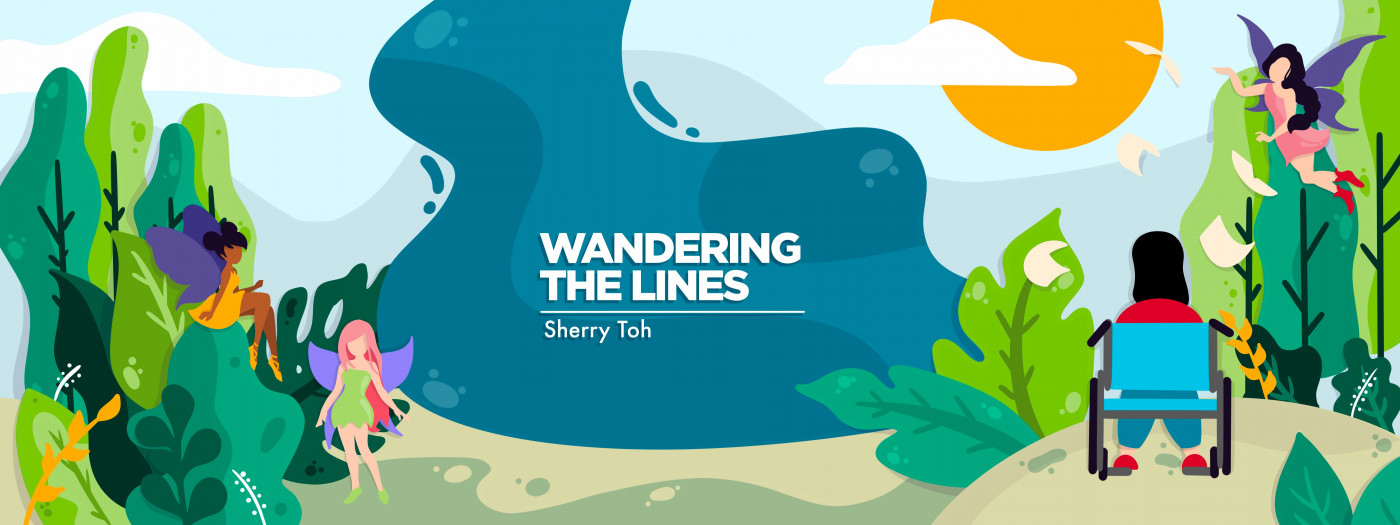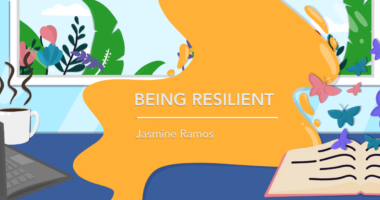For the Love Who Stayed on My Darkest Nights

After I was hired as a columnist for SMA News Today, a stack of onboarding documents was sent to my email. I spent an entire day reading them and signing my name systematically. But among the documents, one titled “Writing Advice” drew my deeper attention.
I’m not usually one who goes for people advising me about my writing. I know most of the standard tips, I’ve read a number of anecdotes from famous writers, and I know what works for me. I’m content with that. Nevertheless, I read the file to glean what was expected of me for SMA News Today. Within it, I found an amusing illustration of the privacy policy and grave warning about publishing columns on romantic relationships by BioNews’ Columns Director Brad Dell. He describes how he wrote a tribute to his ex that was swiftly followed by a breakup.
Brad advised us not to write about breakups.
My story for this column contains a breakup.
I would apologize to Brad for throwing his advice out the window, but this story isn’t about a breakup. A breakup occurs, yes, but my story is ultimately about love and hope.
***
This is an unlikely story. It involves me, a Singaporean with SMA, and a Texan named Hannah. We’d met online, two people who should’ve been worlds apart, yet have more in common than an 800-word column will allow — down to our preferences in fiction and pizza (the less toppings, the tastier).
I’ve known Hannah for two years, but I regret that we didn’t become best friends until recently. We’d talked on and off before, but our daily correspondence didn’t begin until March, the marker of a trying time for me. My family moved into an inaccessible place, and my chronic neuropathy had started to affect my left leg, then most other areas in my body. Hannah was kind enough to reach out and help me cope with the physical and emotional pain. In doing so, she became a much-needed constant in a time of change.
She’d sit with me for hours every day. From night till morning in Texas, morning till late afternoon in Singapore, we’d talk about ideas for stories, our shared interests, and our lives. Though she wasn’t with me physically, her presence was a comfort and a lifeline.
I haven’t consulted with a mental health professional, so I hesitate to say I had depression with a capital “D.” But for the past six months, I’ve struggled to find reasons to get out of bed. The prognosis my neurologist gave me was that the neuropathy would worsen without a procedure my lungs likely can’t handle. It felt like a death sentence. Suddenly, I couldn’t see a future. I believed I’d lost my chances at the life I wanted — with a degree, a career, and a romantic partner — and I’d become more difficult to love.
To think Hannah would call me easy to love in August.
Hannah, who’d been by my side since my life took a sharp left, who knew the worst of it, who made sure I didn’t go off the deep end.
Hannah, who looked at photos of me, spinal deformity and all, and didn’t think of me as a horrific anomaly, but simply said, “I just see you,” as though she knew it was all I wanted.
I don’t know how or when, but writing this, I do know why I fell for her — not only is Hannah intelligent, compassionate, patient, honest, and hilarious, she can see things I can’t.
She has no illusions about the world, yet she rejects status quos many of us, myself included, struggle to reject. Society undervalues people who are disabled, to the point that obstacles are placed in our pursuit of courtship and marriage, and our desire for romance is frowned upon. But Hannah treated me as someone worthy of her friendship and love all the same.
I can only love her more for that.
We did have to end our exploration of a romantic relationship less than three weeks after I confessed my feelings to her in July. Hannah had her studies and her job, and she feared our communication would break down. I understood. The timing wasn’t right for me, either. Selfishly, however, I told her we could try again in the future.
You can’t rid someone of grief just because you love them. All you can do is show them that life continues and that they matter, as Hannah did for me. The rest is up to them.
Whether Hannah and I will date again remains to be seen. The future is uncertain and full of possibilities. The sole thing I’m certain of is this: I will forever be grateful to Hannah for showing me glimmers of light on my darkest nights, and I’ll forever hold her in my heart.
***
Note: SMA News Today is strictly a news and information website about the disease. It does not provide medical advice, diagnosis, or treatment. This content is not intended to be a substitute for professional medical advice, diagnosis, or treatment. Always seek the advice of your physician or other qualified health provider with any questions you may have regarding a medical condition. Never disregard professional medical advice or delay in seeking it because of something you have read on this website. The opinions expressed in this column are not those of SMA News Today, or its parent company, BioNews, and are intended to spark discussion about issues pertaining to spinal muscular atrophy.









Comments